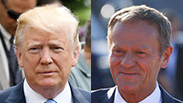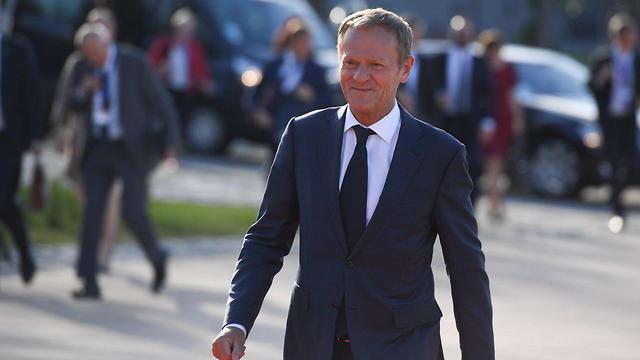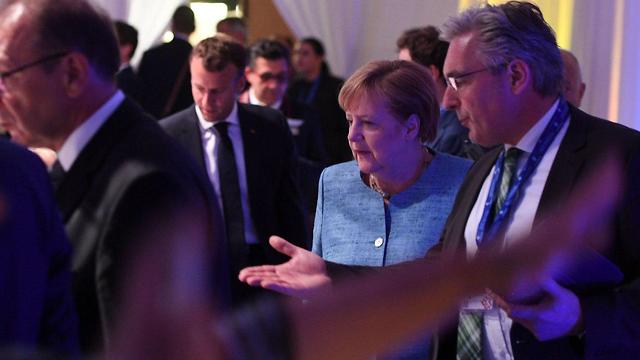

EU's Tusk: 'With friends like Trump, who needs enemies?'
European Union Chairman Tusk criticizes US President Trump for pulling out of Iran nuclear deal and leading trade disputes; Tusk says Europe must protect trans-Atlantic bond, has to be prepared for times when 'we will have to act on our own'; French lawmaker voices concerns about future relations with US, say it's time for 'Europe to stand up for itself.'
US President Donald Trump has "rid Europe of all illusions" by quitting the Iran nuclear deal and driving trade disputes, the European Union Chairman Donald Tusk said on Wednesday, underlining the depth of trans-Atlantic discord.
The 28 worried EU leaders gathered in the Bulgarian capital for discussions over dinner on Wednesday on how to salvage the nuclear deal and European business dealings with Iran from Trump's sanctions and how to avoid a trade war in an escalating tariff dispute with the United States.
Tusk said the EU must be more united than ever before to deal with what he called Trump's "capricious assertiveness."
"Looking at the latest decisions of President Trump, someone could even think: With friends like that, who needs enemies?" Tusk told a news conference.
"But frankly speaking, Europe should be grateful to President Trump. Because thanks to him we have got rid of all illusions. He has made us realize that if you need a helping hand, you will find one at the end of your arm."
European leaders are troubled by Trump's "America first" rhetoric and inconsistent statements on NATO and the EU. Trump's decision to pull out of the Paris climate change accord and the 2015 nuclear deal with Iran threaten Europe's own foreign policy, which was long complementary to Washington's.
"Europe must do everything in its power to protect, in spite of today's mood, the transatlantic bond. But at the same time we must be prepared for those scenarios, where we will have to act on our own," said Tusk, a former Polish prime minister.
Trump's moving of the US Embassy in Israel to Jerusalem this week has also upset many in Europe, though the EU has failed to condemn the move squarely due to opposition from the Czech Republic and Hungary, which are strongly pro-Israel.
Trans-Atlantic chill
French President Emmanuel Macron has tried to charm Trump but that failed to prevent Washington last week from abandoning the Iran deal, which seeks to curb Tehran's nuclear program in exchange for sanctions relief.
Speaking to lawmakers in Paris on Wednesday, France's junior minister for Europe, Jean-Baptiste Lemoyne, said the US behavior meant it was time that Europe stood up for itself.
"The extra-territorial dimension of US sanctions is unacceptable. We must develop our economic sovereignty now. It's a moment of truth for Europe," he said.
German Chancellor Angela Merkel has strongly backed efforts to develop a collective European approach towards Trump's unilateralism but she told the lower house Bundestag on Wednesday she remained determined to support trans-Atlantic relations.
The EU and the United States have traditionally been the closest of allies, working together also via NATO. But Trump has also lambasted his European peers for not spending enough on defense, raising doubts among many in Europe about his commitment to NATO and Europe's broader security.
"The broader US-EU security relationship is at risk," a former US envoy to the EU, Anthony Gardner, told the European Parliament on Wednesday.

















